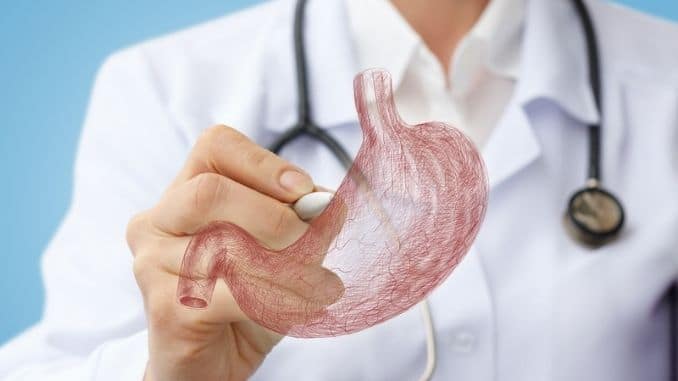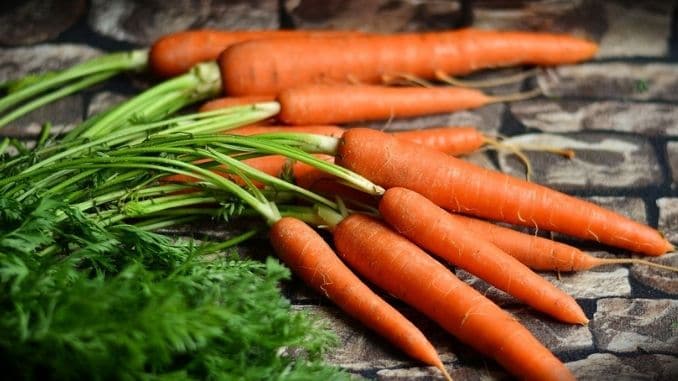
If you suffer from regular digestive troubles, fatigue, headaches, sugar cravings, and skin rashes or eczema, you may have a condition known as “leaky gut syndrome.”
Although the established medical community doesn’t yet recognize this syndrome as an official disease, they do acknowledge that the intestines can become more permeable with age, poor diet and inflammation. Once that happens, toxins and waste materials may “leak” into the bloodstream where they can cause harm potentially.
Although there is no standardized test you can take to diagnose leaky gut reliably, you can talk to your doctor if you feel like your symptoms fit the syndrome. Meanwhile, you may be able to find relief by making some changes in your diet.
How Leaky Gut Develops in the Digestive Tract
Your intestines are made up of a series of tubes that lead from your stomach to your anus. These tubes are shaped like hoses, but they aren’t watertight. Instead, they are like highly regulated doorways that open and close as needed.
The intestinal lining is quite complex, involving millions of cells that work together to absorb the nutrients from food, and then allow those nutrients to move into the bloodstream where they can be distributed to the rest of the body. Those same cells keep waste products in so that they can be pushed down the line and flushed out of the body.
Your intestines are working continuously to allow some things through to the bloodstream while keeping others out. When they’re healthy, they do their job well, and everything operates as it should.
If something damages those intestinal walls, however, it can disrupt the cells’ ability to allow nutrients out while keeping waste in. Damaged intestinal walls can begin to malfunction, allowing waste and toxins through into the bloodstream. As a result, you have a leaky gut.
What damages those intestinal walls? The biggest culprit is inflammation. Here’s how it goes: something stresses the cells in the intestinal lining. The immune system gets the message that something is wrong and sends in cells to repair the problem. When immune cells go to work, they cause inflammation, which is normally a good thing as long as it doesn’t last too long. The cells do their job, fix the problem and the inflammation disappears.
Sometimes, however, the cells continue to send out stress signals, and the immune cells continue to respond, causing chronic or long-term inflammation that damages the intestinal lining. This damage then results in a cellular malfunction that allows toxins and waste products through, causing problems in other parts of the body.
One of the ways we can reduce symptoms of leaky gut is to calm that inflammation that’s going on. The best way to do that is through a healthy diet.
How Diet Is Connected to Leaky Gut
We don’t have all the answers as to how to heal a leaky gut, but we do have evidence that what we eat can contribute to the problem. Several studies have found a connection between certain foods and chronic inflammation in the body.
In a 2015 study, for example, researchers wrote, “There is a substantial amount of evidence to suggest that many foods … modulate [control or influence] inflammation both acutely [short-term] and chronically [long-term].”
We already know that some fatty acids, for example, such as those present in certain fish, can help lower inflammation while simple carbohydrates seem to raise it, particularly if they cause spikes in blood sugar levels, which they typically do. High-fiber foods are also known to help lower inflammation while foods high in saturated fats raise it.
The specific results in each person can vary because genes have a role to play too. Whereas one person may suffer from chronic inflammation after years of eating a high-fat diet, another may not be so affected. This is where it helps to know your own body — how do you feel after eating certain foods? How do they affect you personally?
One thing that applies to everyone is that fruits and vegetables are protective. Diets high in these items have shown repeatedly to be protective against inflammation as well as disease in general. Greater intake of berries, in particular, is protective against the type of inflammation that can lead to leaky gut.
10 Foods to Avoid If You Suspect Leaky Gut
Considering what we know so far, we can conclude that those experiencing the symptoms of leaky gut should avoid pro-inflammatory foods like the following.
1. Sugary Sodas (Refined and Processed Sugar)
Today, the average American consumes about 152 pounds of sugar per year, which equals about 6 cups a week. The American Heart Association recommends no more than 9 teaspoons per day for men and 6 teaspoons per day for women, but our average daily intake today is about 42.5 teaspoons.
It’s not that sugar itself is evil — it’s that we’re eating far too much of it. Part of the problem is that it’s everywhere, even in foods we think of as healthy like whole-grain bread, nut butter, soup, and even condiments.
Studies indicate that diets high in refined sugar promote excess inflammation while cutting back on sugar helps lower inflammation. In a 2018 review, scientists reported that several studies had linked dietary sugar, particularly from sugary drinks, with chronic inflammation. A 2014 study, on the other hand, found that when people reduced their intake of sugar-sweetened drinks, their inflammation levels dropped.
2. Lots of Alcohol
While the occasional glass of wine may be beneficial to your heart health, it’s best to limit your intake of alcohol if you want to repair a leaky gut. That’s because alcohol is not only connected to inflammation, it’s also thought to impair gut function, making leaky gut worse.
Excess alcohol consumption has a direct effect on the immune system, promoting more inflammation. In a 2010 study, researchers reported, “Chronic alcohol use impairs not only gut and liver functions but also multi-organ interactions, leading to persistent systemic inflammation and ultimately, to organ damage.”
Indeed, when we metabolize alcohol, we produce free radicals, which are known for their ability to stimulate inflammation. Alcohol also encourages the release of toxins from the gut, so keep any alcohol intake to a minimum.
3. White Bread and Pasta (Refined Carbohydrates)
These are foods that have been stripped of their bran, fiber, and some nutrients and, thus, break down quickly in the body, spiking blood sugar levels. They include white bread, white rice, white pasta, pastries, sweet desserts, breakfast cereals and virtually anything made with white flour.
Regularly consuming high levels of these types of carbohydrates can increase inflammation. In a 2014 review, researchers reported that those who had a lower dietary intake of refined carbs also had less inflammation than those who ate a lot of them. Furthermore, the studies showed that eating complex carbs like whole grains and high-fiber options provided anti-inflammatory effects.
4. Hamburgers and Other Fast Food
The occasional stop by the Golden Arches isn’t likely to hurt you — just don’t make a habit of it. Fast food has been directly linked with inflammation in a pretty major way.
One study led by scientists at the University of Bonn found that the immune system responded to a fast-food diet in much the same way as it would to bacterial infection! It not only stimulated widespread inflammatory activity, but it also activated certain genes responsible for generating more inflammation. Once the subjects switched to a healthier diet, the inflammation subsided.
In another study, researchers noted that a fast-food diet high in saturated fat could result in inflammation in the gut, leading to a breakdown of barriers, “allowing the harmful substance to leak from the gut into the bloodstream … .”
5. Diet Soda (Artificial Sweeteners)
Many of us believe that sugar-free items must be healthier than their sugary counterparts, but recent research has shown that’s not necessarily true. One of the most concerning outcomes concerns gut health — artificial sweeteners seem to damage it.
In a 2019 study, researchers discovered that saccharin, sucralose, and stevia — all popular artificial sweeteners —changed the composition of the gut microbiome, which is the natural balance we have of good and bad microbes in the gut, in a negative manner.
Saccharin, for example, resulted in the elimination of a specific group of microbes and inhibited the growth of other healthy bacterial strains. Those subjects consuming saccharin also experienced increased inflammation.
Sucralose decreased the total number of certain healthy bacterial strains in the gut and resulted in increased inflammation. Even stevia, which is a natural artificial sweetener, weakly inhibited the growth of healthy bacteria.
Some studies suggest that the intake of sweeteners like saccharin because of their impact on the gut microbiome, could have a negative effect on blood glucose — in effect, increasing the risk of obesity and diabetes, rather than decreasing it.
6. Raw Spinach and Carrots (Raw Veggies)
Although these are nutritional vegetables, in their raw form, they require your gut to work overtime to digest them. If you are suffering from leaky gut, you may be short on digestive enzymes like lipase, amylase, proteases, and peptidases. These enzymes typically help break down food, but if you are low in your supply, the digestive process slows and the intestines struggle.
Listen to your body. If you eat raw veggies and experience bloating and other digestive ailments, stick with cooked ones for a while until you start to feel better.
7. Potato Chips and Pizza (Processed Foods)
Most of these are highly processed, which means that they’re high in preservatives and additives that aren’t good for your gut.
In a 2015 study, scientists found that artificial preservatives used in many processed foods could increase the risk of inflammatory bowel disease. These chemicals, such as artificial sweeteners, were found to alter the makeup of the microbiome.
A diet high in processed foods, according to researchers from Norway, creates an environment in the gut that is “an evolutionarily unique selection ground for microbes that can promote diverse forms of inflammatory disease.”
Whenever possible, choose foods that are minimally processed, including:
- Fresh produce
- Frozen fruits and vegetables with nothing else added
- Canned meats packed without chemicals
- Bagged foods like roasted nuts that are not preserved with chemicals
The most heavily processed foods are typically premade meals, including frozen pizzas and microwaveable dinners.
For help adding healthy foods into your diet and improving your gut health, make sure to check out The Best Foods that Rapidly Slim & Heal in 7 Days, here!
.






